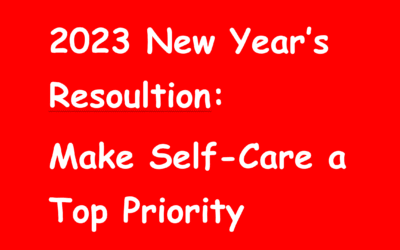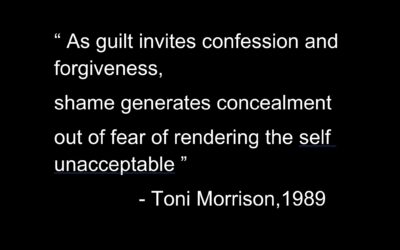Blog & Video Archives
Past Bridge Street Mental Health segment with accompanying text.
Goal 2023: Self-Care
Happy New Year ! For millions, the start of a new year is the time for making resolutions, i.e. things that folks resolve to do to improve their lives. Losing weight, exercising more and stopping smoking perennially top the most mentioned goals. BABY STEPS : An Effective Way to Approach Your New Year’s Resolutions. — | Pastoral Counseling Syracuse NY (revmichaelheath.com)
While all worthy endeavors, this year, I suggest that your efforts be about improving your mental health by focusing on self-care/mindfulness. Indeed, recent studies reveal that, due to the stress of COVID, political tension and other uncertainties, our mental health has declined.
The key to improving self-care is to appreciate its importance and to make it a priority. Unfortunately, wellness-mindfulness is sometimes misunderstood. It’s often seen as just another resolution that one knows that they should do but really don’t want to do. Resistance to self-care is often due the fact that it is externally imposed, e.g., a doctor’s recommendation to lose weight.
Pursuing healthy mindfulness often feels like having to endure deprivation of something you like or engaging in an unpleasant activity, e.g. giving up favorite foods or engaging in painful or boring activities.
A better way of looking at self-care is to view it as a commitment to one’s well-being. It’s the practice of “taking an active role in protecting one’s own physical and emotional well-being and happiness, particularly during periods of stress ” “What is self-care? | Global Self-Care Federation (selfcarefederation.org)
When seen this way, being good to yourself avoids the resistance and resentment of an externally imposed demand. Self-care becomes a freely made choice to ay attention to things that promote our health and make our lives easier.
Here are some commonly asked questions to help you get started improving your self-care: What does self-care involve? What keeps us from taking better care of ourselves? 3) What can help you to improve your self-care?
Inaccurate Self-Esteem
The problem of low self-esteem ( LSE) has been around for many years. In fact, LSE has almost become a psychological cliche which in some ways is misunderstood.
Nonetheless, having a poor self-image can cause a number of emotional and relational problems.
Today I want to clarify, refocus and define the problem of low-self-esteem as one stemming from a distorted/inaccurate perception of self. In doing so, I want to step back and explain 1) Why having a positive self-image is so important , 2) The basic components of a positive self-image and 3) How self-esteem is damaged.
Christianity, Sex & Shame
Recently, I wrote about the problem of false guilt and shame which can interfere with a person’s ability to think clearly and relate rationally to others. False Guilt and Shame | Pastoral Counseling Syracuse NY (revmichaelheath.com)
Today I want to talk about shame and guilt about sex and the major source of these destructive feelings, i.e. traditional religious teachings about sex and pleasure. Over the centuries, traditional Roman Catholic and Protestant doctrines have caused of a lot of needless stress. And, as hard as it is to believe, they continue to be a source of pain for many.
From a psychological point of view, traditional Christian beliefs viewed normal sexual feelings to be in conflict with God’s law and, therefore, sinful. Thus, lacking positive teachings about sex, natural desires evoked feelings of sinfulness and even self-hatred.
Those who suffer with this conflict need to know that this antipathy was not always the case. It is important to understand the evolution of Christian thought and how the delights of sex found in Song of Solomon were squelched and replaced with negative views.
While complex, two major developments are largely responsible for this change: 1) apocalyptic expectations. and 2) The disappointment of those expectations experienced by the delay of the Jesus’ 2nd coming (the Parousia). Let me explain,
The Internet and Addiction
I recently wrote about how the advent of internet pornography had made raising children much more difficult for parents. ON PORN AND PARENTING | Pastoral Counseling Syracuse NY (revmichaelheath.com)
Today, I want to discuss how frequent internet activity triggers dopamine release in the brain and may lead to addiction. Specifically, I will explain how excessive time on a smart-phone use can hook its unsuspecting users .
Although addiction is an age-old problem, smart-phone technology presents a new risk . Research has confirmed the problem that parents and unhappy spouses have struggled with for years: How to get members of their family to put their phones down?
To better grasp the risk that smart phones pose for addiction we need to understand 1) Some basic neuro-chemistry. Particularly how dopamine creates addictive behaviors. 2) How folks can become addicted to their smart phones. 3) How to tell if someone is addicted to their phone. and 4) Successful treatment strategies for smart-phone addiction.
ON PORN AND PARENTING
Few would disagree that omnipresent internet pornography harms children and poses a difficult challenge for parents. That said, many who oppose it don’t understand the real damage that it does. Worse, many of the common approaches exacerbate the problem or interfere with open communication .
Although internet porn has been around for over twenty-five years, we are now just beginning to understand how it impacts a child’s social and psychological development. To be clear, internet porn is more difficult to deal with than pornography from an earlier era. The Impact of Internet Pornography on Adolescents: A Review of the Research: Sexual Addiction & Compulsivity: Vol 19, No 1-2 (tandfonline.com)
In response, I want to examine the problem and provide some help for parents. Specifically, I want to:
— Explain why internet pornography is different from earlier X-rated materials.
— Dispel some common myths about pornography.
— Clarify how internet pornography is harmful for young children and teens.
— Debunk popular approaches to dealing with porn which do not work. and
— Offer a rational approach for teaching children about porn on the internet.
Before Seeing a Therapist
Recently, I received a questionnaire from my new doctor in advance of my annual wellness exam and this got me to thinking: Why not do the same for my new clients ?
In the past I’ve written a number of articles which try to explain what counseling is. Becoming Reasonable: Updating our Notions of Mental Health and Counseling. (revmichaelheath.com) Likewise, there are many books and articles which explain what to expect from counseling but not a lot which help you to mentally prepare for your first session. –What to Expect from Therapy | JED (jedfoundation.org) Many wonder if it is okay to just show up?
Although many folks do come in for their first session unrehearsed, I have found, over the years, that it’s helpful for a client to take a little time before the first appointment and ask themselves some basic questions about what it is that is bothering them.
So, today’s segment is just that, some things for folks to consider who have never gone to counseling before and who are a little uncertain about how to proceed. After all, it is intimidating to sit down with a complete stranger and talk about personal and even embarrassing problems. How does one begin ?
Reflecting on what’s bothering you not only helps to calm the jitters but it also can provide an important context from which the issue emerged. This wider perspective is necessary for the counselor to accurately assess and treat what is of concern to you.
Here are some questions to ask yourself which can help you clarify / communicate your experience to your counselor and help you get started:
Religious Talk in Therapy
There was a very interesting article in the Washington Post recently about how more and more therapists were opening their counseling approach to include religious beliefs and concerns. More psychotherapists are incorporating religion into their practices – The Washington Post
As a pastoral counselor, I wish to applaud this development and make some observations that I have learned over the past forty-five years of practice. Pastoral Counseling ? | Pastoral Counseling Syracuse NY (revmichaelheath.com)
First off, it is important acknowledge and to understand why religious language has been a problem for some therapists in the past. Even though cultural sensitivity and inclusiveness has increased toward race, gender and sexuality, spirituality has been neglected. One reason stems from the fact that American culture is predominantly secular. For example, in contrast to the ancient Europe, Americans build sports stadia and skyscrapers, not cathedrals. Statistically, fewer people now worship than ever before in America (less than 50%).
Another contributing factor to psychotherapy’s awkwardness towards spirituality is psychology’s open hostility to religion. For example, Freud skeptically referred to it as “mass hysteria”.
Not surprisingly, therapists tend to be less religious than the general population. Many openly acknowledge feeling awkward when encountering clients who espouse a faith or employ religious language when explaining their concerns.
Psychology’s antipathy to religion is not a secret. Not surprisingly, many clients report feeling self-conscious about their faith and sometimes are reluctant to speak of their spiritual concerns in therapy for fear of appearing “religious”.
All of this notwithstanding, it is important that clients and therapists, alike, understand that neither needs to be uncomfortable when discussing matters of spiritual or religious content. It is my belief that much of the tension between psychology and religion stems from a fundamental confusion about their roles.
WHY DO MEN CHEAT ?
Why do men cheat ?
I suppose, to be fair, that one should ask why do people cheat. That said, statistics show that, after the age of 25, men do tend to be more unfaithful to their spouses than women. And, as we age, the disparity increases. After age 60, the percentage of women’s extra-marital activity begins to decline while men’s continues to increase until age 70.
Gender differences aside, the real question is: Why is it so difficult for people to be faithful to one another in marriage ? While the question is complicated, there are some things that we do know.
First. there is no one reason that people have affairs. Some folks have a trauma-based sexual compulsion. Others, use sexual conquests to calm anxiety issues, similar to the way some use alcohol, drugs, gambling etc. Still others have affairs out of sheer boredom or lack of meaning in their lives or relationship.
Apart from these general distinctions, there is a myth which confuses our understanding of affairs. Many folks believe that sex is the prime reason people cheat. While the thrill of new sexual experience is a part of the attraction of affairs, research shows that that sex is not the primary motivation. Why do People Cheat Even When in Happy Relationships? (simplepractice.com) Let me explain why:
False Guilt and Shame
Psychologists write a lot about guilt and shame. Shame vs. Guilt – Brené Brown (brenebrown.com) False guilt and trauma induced shame are two of the most emotionally destructive experiences felt by clients and challenging for therapists to treat.
Despite their notoriety, folks often confuse their meaning. Guilt-Tripping and Emotional Manipulation | Pastoral Counseling Syracuse NY (revmichaelheath.com) For example, it is common for people to use the terms interchangeably. In fact, their meanings are quite different.
Today, we’ll highlight the differences between guilt and shame and suggest ways to deal with and reduce their impact.
WHAT IS LOVE ?
Has there ever been a word more written about than love ?
Everyone seeks it. Most folks think they know what it is. But, ironically, couples often worry about if they are loved or if they are able to love .
Over the centuries, no one has improved on what St. Paul had to say about love in I Corinthians 13.4-7 (rsv) :
” Love is patient and kind; love is not jealous or boastful; 5 it is not arrogant or rude. Love does not insist on its own way; it is not irritable or resentful; 6 it does not rejoice at wrong, but rejoices in the right. 7 Love bears all things, believes all things, hopes all things, endures all things.”
St. Paul is clear about what love (agape) is in relation to a friend or neighbor. However, when love is understood in the context of marriage, it is a little more complicated. The intimacy of a committed adult relationship adds the elements of sexual passion and desire. Navigating and balancing concerns for one’s beloved and for oneself own can be challenging and confusing. Is It Love or Chemistry? Tips for knowing when real love comes along. | Pastoral Counseling Syracuse NY (revmichaelheath.com) To make matters even worse for couples , many of the romantic myths, found in popular literature and media, have created unrealistic expectations about relationships which distort many folks’ understanding of love. Here is an approach that can help us to sort it all out .
Stigma and Depression
There is good news for those who worry about the stigma associated with mental health.
The amount of stigma surrounding counseling is much less than it used to be. When I first started counseling in the late 70s, some men would not schedule appointments during daylight hours for fear of being seen going to a counselor’s office.
Although attitudes have improved, many people still view getting help with emotional problems as embarrassing or even shameful. In large part, this discomfort is due to certain lingering myths about mental health. Common myths created misunderstandings about psychological disorders and their treatment. Here are some common notions which are misleading and or false:
988 IS NOW OPEN !
Have you heard about 988 ? This national service begins today (July 16th 2022) !
In the wake of so many unsettling events, the need for increased mental health services has never been greater. To this end, access to the national mental health hot-line has been simplified to a new 988 number,
What ? Sex Toys ?
Sex toys ? Why would a pastoral counselor want to talk about sex toys ? Perhaps providing some context would help.
Being Sex Positive
An important theme throughout my career has been to allay the false guilt and shame engendered by religion and our sexist culture. My goal has been, and continues to be, to promote positive attitudes about sex. That is, as young folks say, to be sex-positive.
Religious and Cultural Bias
First, it needs to be understood that being sex-positive flies in the face of thousands of years of religious and cultural bias.
To be sex-positive, one must feel free to have sex just for its pleasure. While this view may seem obvious, for many, it’s not. For many, especially older folks, enjoying sex is complicated. A cloud hangs over the notion that sex can be enjoyed just for fun. Hedonistic enjoyment is suspect and guilt ridden. That’s because religion has often portrayed sex in a quasi-sacred way that confusingly combines erotic experience with the spiritual mystery of procreation.
Indeed, traditional religious beliefs have negatively influenced our culture’s attitudes toward sex. Condemning normal practices like masturbation as sinful has created unnecessary guilt and shame for older generations. masturbation | Pastoral Counseling Syracuse NY (revmichaelheath.com)
Pernicious Myths Ignore Single People and Older Adults
The indisputable fact is that conservative Christianity is and always has been uncomfortable with sex. (See St. Augustine) It sees it primarily as the means for procreation. (See Thomas Acquinas) In doing so it refuses to acknowledge the legitimacy of sex simply for pleasure or outside of the bonds of marriage.
As a result, the church’s outlook toward sex ignores and fails all single folks and seniors who are beyond child-bearing years. Further, through its silence, the church implicitly promotes false notions about sex and aging.
For example: we are led to believe that sexual interest wanes with age and becomes less and less important the older you get. In fact, barring serious medical limitations, interest and enjoyment of sex is a lifelong entitlement which actually can increase over the years.
That said, aging does change certain things about the way folks can have sex. The loss of flexibility or increased discomfort may require that some things be done differently. Unfortunately, this general discomfort with sex prevents many couples from even talking about sex much less exploring new, more adaptive and exciting sexual possibilities.
What about Sex Toys ?
All of this brings us to sex toys and a recent article in Slate online.
Marital Mindfulness
You may know that the term mindfulness is very popular among psychologists, therapists and the self-help crowd. However, you may not have realized that marital mindfulness is important for improving initmate relations.
Certainly, the institutions of marriage and family have undergone dramatic changes over the past decades. And it is true that the divorce rate has consistently dropped as the average age of those marry has risen.
Indeed, being older and more mature helps couples to negotiate the challenges of a partnership. Millennials Are Causing the U.S. Divorce Rate to Plummet – Bloomberg That said, over the past 50 years, other cultural shifts have made sustaining marriage more difficult, now than in the past.
Being Present
I was recently in a seminar on polyvagal theory (Being Polyvagal: The Polyvagal Theory Explained – Windhorse Integrative Mental Health – Windhorse Integrative Mental Health (windhorseimh.org) and trauma when I was struck by how much the science which informs our understanding of psychological disorders has changed over the years.
As I look back to when I first began training in 1978, it is obvious that recent advances in neuro-biology have been extraordinary. In short, we have gone from thinking of emotional problems as originating in the brain to understanding that, in most cases, environmental trauma is the culprit. Indeed trauma damages the brain, specifically the vagal nervous system and hippocampus.
Nonetheless, scientific progress and innovative therapeutic techniques notwithstanding, the basic goal of psychotherapy has remained the same: To help people live more rationally in the present. Becoming Reasonable: Updating our Notions of Mental Health and Counseling. | Pastoral Counseling Syracuse NY (revmichaelheath.com)
Today, while the expressions of ” being present “or “living in the present” are widely used in the media and promoted by mental health professionals, How to Live in the Moment: 35+ Tools to Be More Present (positivepsychology.com) , what it actually means to live in the present is sometimes confusing.
Basically, being present means being able to be attentive to and to be aware of our own immediate experience. When our focus is on the present, we are then able to fully engage with others. While it sounds simple, many people have a hard time being present. With that in mind, there are two obstacles which prevent us from being emotionally present.
2017
- May 31, 2017
Understanding the Parallels between Biblical and Psychological Wisdom - May 14, 2017
Aprreciating the Emotinal Complexity of Mother’s Day - May 02, 2017
Redefining Mental Health: The Struggle to be Reasonable - April 16, 2017
Easter and the Therapeutic Process: The Rest of the Story - April 02, 2017
Judgers and Perceivers - March 19, 2017
Communication Tip # 6 : Understanding the Differences between Thinkers and Feelers - March 04, 2017
Communication tip #5 : Understanding iNtuitive and Sensate Personality Differences - February 21, 2017
Communication Tip # 4: Understanding the differences between Extroverts and Introverts - February 03, 2017
Aristophanes and the Myth of Androgyne: The Soulful Meanings of Love - January 15, 2017
The Myth of “Holding on” to the Past : Neuro-science and the Grieving Process - January 02, 2017
Being Reasonable about New Year’s Resolutions:
2016
- December 17, 2016
New Research offers Hope for Resistant Depression - December 04, 2016
Bursting Some Common Myths About Pastoral Counseling - November 23, 2016
Thanksgiving: A Time for Regaining Perspective and ,for some, Conflict - November 11, 2016
Dealing With Political Grief - November 02, 2016
Explaining the Facebook Study: Turns out Cyber Friends Are Important Too - October 19, 2016
Beyond Romantic Myths: 9 Tips for Getting real about what it takes to have a great marriage - October 03, 2016
Why Mental Health Check-Ups Are a Good Idea - September 15, 2016
Appreciating the Health Benefits of Good Friends - August 31, 2016
When it comes to sex, men are Windows and women are DOS - August 14, 2016
Good News for People Who Worry about Memory Loss - August 05, 2016
The Psychology of Blaming: Learning to See the Fear Behind the Anger - July 07, 2016
Psychological Manipulation: What it is and How to deal with it. - June 21, 2016
Coping with the Absurd and the Horrifying Stories in the News - June 05, 2016
Do you have to be “crazy” to see a therapist ? - May 18, 2016
Sex in Marriage : Are You having Enough ? - May 07, 2016
Updating the Image of Psychotherapist: A Life-Tour Guide - April 29, 2016
Updating the Image of Psychotherapist: From Orthodontist to Helicopter Pilot When people think abo - April 12, 2016
Spring Cleaning for your Marriage - March 28, 2016
Some thoughts about the importance of Hope - March 16, 2016
I-Statements 101: The Keys to Expressing Anger Constructively - March 02, 2016
Understanding Leisure as an Essential Part of Self-Care - February 12, 2016
Romantic Myth # 3: Love is a Special Feeling - February 09, 2016
Romantic Myth #2 : Love Never Ends - February 06, 2016
Bursting Popular Myths about Love - January 25, 2016
How to Make a Worry List: The Importance of Emotional Triage - January 12, 2016
Want More Intimacy In Your Relationship? Try Sharing Your Dreams - January 02, 2016
The Secret to Keeping New Year’s Resolutions
2015
-
- December 21, 2015
Light and the Meaning of the Holidays - December 07, 2015
Dealing with Increased Terror-Related Anxiety - November 20, 2015
Dealing with the stress of Holiday Gatherings - November 10, 2015
Are You An IMpatient Person ? - October 27, 2015
How Exchanging Marital Report Cards Can Improve Your Relationship - October 07, 2015
October is Domestic Violence Awareness Month - September 21, 2015
Understanding the new “Female” Viagra - September 12, 2015
Talking about end of life issues and facing our fears of dying - August 24, 2015
Bursting the Forgiveness Myth - August 13, 2015
Understainding our False Guilt about Sex - August 02, 2015
Do you know your “Organ of Distress”: Recognizing when an emotional fire is about to break out. - July 20, 2015
How to Build Trust After an Affair . - July 05, 2015
The “Emotinal Cigarette” – A breathing exercise to help you relax. - May 18, 2016
Sex in Marriage : Are You having Enough ? - June 24, 2015
Good News for Work Outs - June 15, 2015
Sneaky Depression Triggers - June 03, 2015
Human Sexuality Is More Complicated Than You Think. - May 28, 2015
Mental Health Myth # 4: Talking to friends is the same thing as going to therapy. - May 28, 2015
Myth # 3: Psychological disorders are very rare - May 06, 2015
The Myth of Mental Illness: 2.0 - May 03, 2015
Did you know that May in Mental Health Awareness Month ? - April 25, 2015
Bruce Jenner Interview Outshines Olympic Gold - April 10, 2015
White House Supports Ban on “Conversion Therapy” for Gay and Transgender Youth - April 03, 2015
Sexism in FDA: Continues a Double Standard, Hurts Women - March 16, 2015
Taking Your Emotinal Pulse - March 05, 2015
Your Emotional Docimeter
- December 21, 2015
Rekindling Passion: Part Two – The Secret to Re-igniting the Fames of Desire
-
- January 30, 2015
Rekindling Passion: Part One – The Truth about Aphrodisiacs - January 14, 2015
Emotional Triage and the Worry List - January 06, 2015
A Check-List Before Making Your New Year’s Resolutions
- January 30, 2015
2014
- December 10, 2014
Reducing Stress Around the Holidays - November 23, 2014
Feeling Grattitude When Times Are Hard - November 07, 2014
Reducing Stress for Seniors : Tips for Dealing with Everyday Worries and Finding More Joy in LIfe - October 27, 2014
Five Things You Didn’t Know About Halloween - October 14, 2014
Having Good Sex is a Sign of a Healthy Marriage - September 30, 2014
New “Consent” App Asks Partners Important Questions to Think About Before Having Sex - September 09, 2014
Lame Excuses – Why we make them. How to stop. - August 13, 2014
Robin Williams’ Severe Depression: Keeping Things in Perspective - July 16, 2014
The Quiet Crisis: Adult Children Caring for Aging Parents - June 18, 2014
Clearing up the confusion about Transgendered People and Gender Non-Conformity: Getting the medical - May 21, 2014
Getting Rid of Grudges: Just let it go – or maybe not. - April 16, 2014
Finding Romance among the Diapers - March 26, 2014
Bursting the “Hard Work” Myth”: The Importance of Leisure - February 12, 2014
Wedding Insurance and Pre-Marital Counseling :Bursting the Obligation Myth. - January 15, 2014
Submissiveness and Leadershipin the Modern Marriage
2013
- December 23, 2013
Reducing Stress Around the Holidays – A Pastoral Counseling Approach - December 18, 2013
Balancing Career and Family - November 19, 2013
Dating Younger: How the internet and social media have expanded dating choices for single people - October 30, 2013
Five Things You Didn’t Know About Halloween - October 09, 2013
Are You Bing Bullied in the Workplace ? - September 04, 2013
Are You Addicted to the Internet ? - August 14, 2013
Post-Partum Depression: What every expectant or new mom needs to know. - July 31, 2013
Secrets of Assertiveness 101: - July 08, 2013
Sex Education for Adults: Cheating - June 17, 2013
PTSD Awareness - June 05, 2013
Leaving the Nest – Vaulable Tips for Parents and Young Adults - May 22, 2013
Five Mental Health Myths - May 08, 2013
A Spring Cleaning for Your Marriage: Personal Appearance - April 17, 2013
Dealing with the Boston Marathon Bombings? - March 28, 2013
“Breaking up” with your Hairdresser - March 13, 2013
Is This ( am I ) Normal - February 27, 2013
Romantic Second Chances: When should I give him (her) another chance? - February 13, 2013
Caring and Consideration: The Keys to Lasting Passion - January 17, 2013
Emotional First Aid: Tips for Responding to Everyday Psychological Distress - January 02, 2013
New Year’s Resolutions: Why We Brake Them, How To Keep The,
2012
-
- December 19, 2012
Take Controle of your Holiday Stress - December 03, 2012
Life Smarts and The Intelligence Myths
- December 19, 2012
- October 30, 2012
Here’s the Skinny on Scary: The Facts about Phobias - October 19, 2012
Oh, I Remember it well … or maybe not ! - September 26, 2012
The Importance of Remembering - September 05, 2012
Going Back to School Chaos: Help for Parents - August 17, 2012
Money Conflicts and Marriage: Tips for Keeping the Peace - July 30, 2012
Using Your Imagination to Overcome Procrastination - July 23, 2012
UPreventing Tragic Story Overload in the Wake of the Colorado Massacre - July 09, 2012
Redefining Normal: An Inclusive Way of Understanding Mental Health - June 27, 2012
PTSD National Awareness Day : Myths and Facts - June 20, 2012
Reducing Stress When You Travel - May 30, 2012
How to Cope with an Unreasonable Boss - May 16, 2012
How to Disagree without Being Disagreeable - May 14, 2012
Myths and facts about happiness: What really makes us happy ? - April 25, 2012
Body Language: Our Emotional Traffic Lights - April 04, 2012
The Importance of Work Place Colleagues - March 14, 2012
Stress and Relationships - February 29, 2012
Is It Love or Chemistry ? Tips for knowing when real love comes along. - February 13, 2012
Can Love and Romance Last ? Yes, But It Takes Work ! - January 18, 2012
Why am I so Impatient ? Tips for Dealing with the New Technologies that are Driving us Crazy./a> - January 04, 2012
The Psychology of Successful Weight Loss — Tips for Avoiding the Emotional Pitfalls which Sabotage
2011
- December 23, 2011
Are You Emotionally Out of Shape ? Here’s a Check List to Help You Become Emotinally Fit - December 07, 2011
Don’t be So Defensive – Tips for Dealing with Criticism Gracefully - November 23, 2011
Feeling Gratitude in the Wake of Hard Times - November 08, 2011
The Truth about Secrets and Itimacy in Marriage - October 26, 2011
How to Have A Constructive Argument - October 12, 2011
The Psychological Cigarette – Understanding the Breathing/Relaxation Connection - October 03, 2011
Am I OCD or just really particular ? - September 12, 2011
The 411 about Marriage Counseling – What it Can and Can’t do. - August 09, 2011
Psychology and Smart Phones: The Risks of Overusing your PocketPC - August 01, 2011
The Art of Compromise: Keys to Successful Marital Negotiation - July 20, 2011
Planning your wedding ? Don’t forget your relationship: the Essentials - July 05, 2011
Creating 2nd Chances: Tips for Turning a Bad Situation into a Good One - June 08, 2011
The Seven Year Itch: Why it Happens and How to Prevent i - May 25, 2011
Fair Fighting – Some Ground Rules for Resolving Marital Conflicts - May 11, 2011
Unnecessary Criticism: Why we do it ; How to stop it - April 27, 2011
Money Conflicts in Marriage: It’s not just about the Money - April 13, 2011
Spring Cleaning Your Marriage: Personal Appearance - April 01, 2011
Understanding and Coping with Jealousy in Marriage - March 16, 2011
Therapeutic Self-Talk: What it is, Why it’s Helpful and How it Works . - March 09, 2011
Breaking the Ice After an Argument: Understanding the Psychology of Post Argument Silences - February 23, 2011
Guilt-Tripping and Emotional Manipulation No one likes to be guilt-tripped, yet it happens all - February 14, 2011
The Secret of Keeping Romance Alive: Tips for Busy Couples - January 26, 2011
Sibling Relationships 101:Tips for Updating your Sib Status - January 19, 2011
How Words Can Help Us to Heal The tragedies of the Tucson shooting has created many emotional wounds - January 14, 2011
A Myth About Mourning Although most of the country was moved by the ceremony held for the victims - January 06, 2011
Boosting Your Brain: Sorting out the Facts from the Myths
2010
- December 29, 2010
End of Year Marital Review and Marital Resolutions for the New Year - July 19, 2010
Pouting - June 28, 2010
Are You Just Discouraged or Really Depressed ? How to Tell the Difference - May 25, 2010
Emotional False Alarms - May 06, 2010
The Science of Making Up - April 12, 2010
Spring Cleaning for your Marriage
2009
- December 07, 2009
Marital Make-Overs for the Holidays: Tips for Fallling in Love All over Again - November 02, 2009
Marriage Is Hard - October 05, 2009
Keeping Your Cool - September 10, 2009
Nagging: Why we do It , How to Stop - July 23, 2009
Understanding Affairs - June 30, 2009
Interviewing Successfully - June 01, 2009
Helping our Parents with Difficult Decisions - March 09, 2009
The Good News About Stress - February 19, 2009
Talking to Teens about Sex















